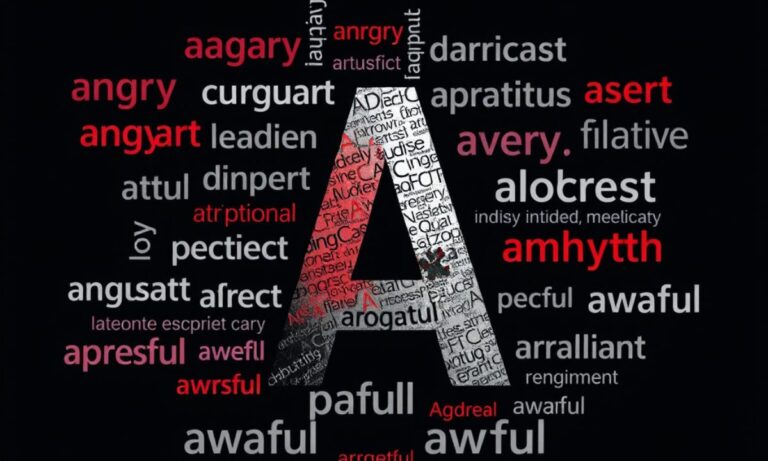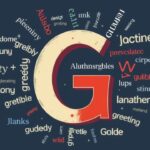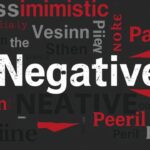The letter “A” begins an astonishing array of words that convey negative meanings across various contexts, from describing unpleasant personality traits to expressing harmful actions.
This collection of 300+ negative A-words serves as an invaluable resource for writers, speakers, and anyone looking to expand their linguistic toolkit with terms that effectively communicate critical perspectives.
By incorporating these words into your vocabulary, you’ll enhance your ability to articulate nuanced emotions, craft more compelling character descriptions, and express yourself with greater precision when addressing challenging situations or confrontational attitudes.
READ MORE: https://fashiongravity.co.uk/negative-words-that-start-with-the-letter-b/
Avarice, Annoy, Appalling
Avarice represents an extreme greed for wealth or material gain that corrupts character and damages relationships, embodying one of humanity’s most destructive traits.
The word “annoy” captures that persistent irritation that gradually erodes patience, whether from a person’s behavior or an unpleasant situation that won’t resolve itself.
“Appalling” describes something so shocking or disturbing that it causes moral outrage or disgust, perfect for expressing strong disapproval of unacceptable actions or conditions.
These three powerful negative A-words demonstrate how a single term can efficiently convey complex emotional responses and critical judgments in both everyday communication and creative writing.
When incorporated strategically, these words add emotional depth to your expression, allowing readers or listeners to connect more deeply with your perspective on toxic behaviors or troubling situations.
Negative A Words To Describe A Person
When describing difficult personalities, having precise negative A-words enhances your ability to articulate problematic traits with accuracy and nuance.
“Argumentative” individuals create interpersonal conflict by constantly challenging others, while “arrogant” people display an offensive sense of superiority that alienates those around them.
Someone who’s “antisocial” deliberately avoids human interaction or behaves in ways that violate social norms, often triggering discomfort in group settings. “Abrasive” personalities grate on others with harsh, irritating communication styles that frequently cause emotional triggers and strained relationships.
“Aloof” describes someone maintaining emotional distance through coldness or indifference, creating awkward communication dynamics that prevent meaningful connection.
“Aggressive” individuals approach situations with hostility or forceful behavior, displaying confrontational attitudes that often escalate tensions rather than resolve them.
These descriptors provide essential vocabulary for characterizing antagonists in literature or addressing negative personality traits in real-world interactions
- Abrasive
- Aggressive
- Arrogant
- Argumentative
- Aloof
- Abusive
- Antisocial
- Antagonistic
- Apathetic
- Abhorrent
- Acrimonious
- Angry
- Annoying
- Absentminded
- Addicted
- Anxious
- Aimless
- Alienating
- Adamant
- Acidic
- Ambivalent
- Artificial
- Avoidant
- Asinine
- Authoritarian
- Avaricious
- Appalling
- Amoral
- Audacious
- Awkward.
Negative Adjectives That Start With The Letter A
Negative adjectives beginning with “A” provide powerful harsh descriptors that add precision and emotional depth to descriptions of people, situations, or behaviors.
“Abysmal” describes something hopelessly bad or deeply disappointing, perfect for characterizing failures or inadequacies with impactful critical language.
“Acrimonious” captures bitter, caustic interactions filled with resentment, ideal for depicting relationship breakdowns or hostile exchanges that reveal toxic behavior patterns.
“Accidental” can carry negative connotations when describing unintended consequences that still cause harm, emphasizing carelessness or lack of foresight. “Acerbic” describes speech or writing that is sharply critical or sarcastic, cutting through pleasantries with biting commentary that reflects an antagonistic approach.
“Atrocious” conveys something horrifyingly bad or cruel, appropriate for the most severe condemnations when milder words would insufficiently express outrage.
“Absurd” highlights something ridiculously unreasonable or illogical, subtly undermining credibility while expressing frustration with flawed reasoning.
These adjectives function as negative modifiers that significantly strengthen descriptive language in both creative and analytical contexts.
- Abysmal
- Atrocious
- Awful
- Abhorrent
- Alarming
- Appalling
- Anxious
- Abrupt
- Acerbic
- Acrimonious
- Abrasive
- Agonizing
- Adversarial
- Absurd
- Apathetic
- Annoying
- Antagonistic
- Artificial
- Abominable
- Aggravating
- Aberrant
- Aversive
- Arduous
- Austere
- Alienating
- Ambiguous
- Antipathetic
- Asinine
- Astringent
- Authoritarian
- Retry
Unusual Negative Words That Start With A
Unusual negative A-words enrich your vocabulary with distinctive terms that convey nuanced negativity while demonstrating linguistic sophistication.
“Altiloquence” describes pretentious, high-flown speech that reveals arrogant tone and insincerity, perfect for characterizing someone attempting to impress through verbal posturing.
“Anemology” might seem neutral as the study of winds, but carries negative associations when used to describe someone preoccupied with trivial matters while ignoring more important concerns.
“Anbury” refers to soft tumors in horses or oxen, serving as an excellent metaphor for problems that slowly grow beneath the surface before manifesting as serious issues.
“Agelast” describes someone incapable of laughter, suggesting a joyless, critical personality that dampens social atmospheres through their perpetual solemnity and lack of humor.
“Ackamarackus” refers to nonsensical language or behavior, ideal for describing deceptive speech or meaningless jargon designed to confuse rather than communicate clearly.
“Amaxophobia” represents the fear of riding in vehicles, exemplifying how many unusual A-words describe specific anxieties that limit one’s engagement with normal activities.
These obscure terms provide unique ways to express negative concepts with precision while expanding vocabulary for writing with originality.
- Abecedarian
- Abequitate
- Aberruncate
- Ablutomania
- Acarophobia
- Acatalepsy
- Acedia
- Acephalist
- Acerbate
- Acersecomic
- Acervation
- Acesia
- Achlys
- Achromatic
- Aciniform
- Acnestis
- Acrasial
- Acrasia
- Acrimony
- Acroama
- Acrophobia
- Adactylous
- Adscititious
- Aeolism
- Aeromancy
- Agelast
- Agrapha
- Agrypnia
- Aichmophobia
- Alcatote
- Alethophobia
- Algorism
- Aliunde
- Allocrass
- Allodoxaphobia
- Allothigenetic
- Allygnment
- Alphamegamia
- Alogism
- Alogotropy
- Alszebra
- Altiloquence
- Amadate
- Ambsace
- Amenomania
- Amentia
- Amorphism
- Amphigory
- Amygdalate
- Anachitism
- Anacoenosis
- Anacoluthon
- Anacrisis
- Anacrusis
- Anagraph
- Analepsy
- Analphabetic
- Anametabolism
- Anamorphosis
- Anaphora
- Anapipty
- Anathema
- Anbury
- Anchorite
- Anconeal
- Andabata
- Anergasia
- Anfractuosity
- Angleworm
- Animadversion
- Animalcule
- Annatiferous
- Annectent
- Annjemold
- Anopisthography
- Anorasis
- Antepenult
- Anteriolateral
- Anthropolatry
- Anthropomorphosis
- Anthropophagy
- Anthrotype
- Antilogarithm
- Antilogy
- Antimacassar
- Antinomian
- Antiphrasis
- Antiquark
- Antonomasia
- Antrorse
- Anuptaphobia
- Aorist
- Apanthropy
- Aparithmesis
- Apathognomic
- Apeneck
- Aperient
- Apetalous
- Aphakia
- Aphelion
Negative Action Words That Start With A
Action verbs with negative tone provide essential vocabulary for conflict writing, precisely describing harmful behaviors and destructive actions. “Aggravate” means to make a situation worse or to deliberately irritate someone, capturing how certain actions escalate tensions rather than resolve them.
“Abuse” encompasses various forms of mistreatment, from verbal harassment to physical harm, making it a powerful term for describing damaging behaviors in relationships or institutions.
“Abolish” means to formally eliminate something, carrying negative implications when applied to valued traditions or institutions that someone wants to destroy rather than reform.
“Ambush” describes a surprise attack that leaves the victim vulnerable and unprepared, perfect for characterizing both literal physical confrontations and metaphorical betrayals in personal or professional contexts.
“Avenge” involves retaliating for a perceived wrong, differing from “revenge” as it implies justified punishment rather than mere retaliation, though both words express anger expression through action.
“Admonish” means to firmly warn or reprimand someone, representing a milder form of verbal correction that still carries negative connotations of disapproval and criticism.
These negative action verbs that start with A provide precise tools for describing harmful behaviors in narratives or personal accounts.
- Abandon
- Abolish
- Abuse
- Abduct
- Abort
- Accuse
- Aggravate
- Attack
- Annihilate
- Antagonize
- Agonize
- Alienate
- Ambush
- Annoy
- Avenge
- Agitate
- Afflict
- Admonish
- Abrade
- Assail
- Adulterate
- Aggrieve
- Ache
- Accelerate (negatively)
- Abase
- Abolish
- Assassinate
- Amputate
- Asphyxiate
- Aggress
More Negative Words That Begin With The Letter A
Expanding your negative vocabulary with additional A-words provides more nuanced ways to express critical perspectives and describe challenging situations with precision.
“Animosity” captures deep-seated hostility between individuals or groups, perfectly describing tense workplace relationships where underlying resentment disrupts collaboration and creates toxic environments.
“Acrimony” refers to bitterness and ill will, especially in the aftermath of conflicts or disagreements, revealing the lingering emotional damage that persists even after the initial confrontation has ended.
“Adversity” encompasses difficult or unpleasant situations that test one’s resolve, reflecting life’s inevitable challenges while acknowledging their painful impact on personal well-being and progress.
“Affliction” describes something causing pain or suffering, whether physical ailments or emotional distress, emphasizing the burden carried by those experiencing ongoing difficulties rather than temporary setbacks.
“Antipathy” represents a deep-seated aversion or dislike toward someone or something, similar to but more instinctive than animosity, suggesting an almost visceral negative reaction rather than developed resentment.
“Audacity” can carry negative connotations when describing boldness that crosses into rudeness or presumption, perfect for characterizing behavior that disregards social boundaries or shows disrespect for established norms.
These words enrich your ability to describe negative traits, emotions, and situations when addressing confrontational attitudes or expressing frustration.
- Abject
- Aberration
- Abjure
- Abnegate
- Abnormal
- Abomination
- Abscond
- Absence
- Abusively
- Abyssal
- Acerbic
- Acrimonious
- Acutely
- Addiction
- Addle
- Adrift
- Adverse
- Adversity
- Affliction
- Affrontive
- Agitated
- Aghast
- Agonized
- Agoraphobia
- Ailment
- Aimlessness
- Alarming
- Alienation
- Allegation
- Allergic
- Allergy
- Altercation
- Amalgamate
- Amiss
- Animosity
- Animus
- Anomalous
- Anomaly
- Anorexia
- Antagonism
- Anxiety
- Anxiously
- Apathetic
- Apex
- Apocalyptic
- Appall
- Apprehension
- Arbitrary
- Arduously
- Argumentative
- Arid
- Arrogance
- Artless
- Ashamed
- Askance
- Aspersion
- Assault
- Astray
- Asylum
- Ataxia
- Atherosclerosis
- Atrocity
- Atrophy
- Attenuate
- Audacious
- Austere
- Authoritarian
- Autocratic
- Avaricious
- Averse
- Aversion
- Avoidance
- Awful
- Awkward
- Awry
- Abhorrent
- Abduction
- Absenteeism
- Absolutism
- Abstraction
- Abstrusely
- Absurdity
- Abysmally
- Accusatory
- Acidic
- Acrid
- Acrimony
- Adamant
- Adder
- Addiction
- Addled
- Admonition
- Adulterated
- Adversarial
- Afflicted
- Affront
- Aggression
- Aggressor
- Aggrieved
- Agitation
- Agonizing
- Ailing
- Alarmist
- Alarmingly
- Alcoholism
- Alienated
- Allergenic
- Aloft
- Alone
- Ambivalence
- Amok
- Anachronism
- Anarchic
- Anarchy
- Anathema
- Ancillary
- Anger
- Angrily
- Anguish
- Annihilation
- Annoyance
- Annoyingly
- Anorexic
- Antediluvian
- Anti-social
- Antipathy
- Antiquated
- Antiseptic
- Antithetical
- Anxiety
- Anxiousness
- Apathy
- Apoplectic
- Apoplexy
- Appalling
- Apprehensive
- Aquaphobia
- Archaic
- Arduous
- Argumentatively
- Aridity
- Arrogantly
- Artlessness
- Ashen
- Asinine
- Asocial
- Assassinate
- Assaultive
- Astonishingly
- Astringent
- Ataxic
- Atheistic
- Atrophied
- Attrition
- Audacity
- Austerity
- Authoritarianism
- Avarice
- Aversive
- Awfulness
FAQ’s
What’s the difference between “avenge” and “revenge”?
Avenge refers to seeking justice for a wrongdoing while revenge typically involves personal retaliation driven by vindictive emotions.
How can negative vocabulary improve my writing?
Negative vocabulary adds emotional depth, creates authentic tension, develops realistic characters, and provides precise language for expressing criticism or conflict.
What are some negative A-words to describe toxic workplace behavior?
Antagonistic, abrasive, authoritarian, argumentative, and accusatory effectively describe problematic behaviors that create workplace conflict.
Which negative A-words are most useful for character development in fiction?
Aloof, arrogant, abrasive, ambitious (negatively), and amoral provide excellent foundations for creating compelling antagonists or flawed characters.
How can I use negative A-words without sounding overly critical?
Balance negative terms with context, use them sparingly for impact, pair them with constructive suggestions, and ensure they accurately describe behaviors rather than attacking character.
Conclusion
Mastering negative vocabulary, particularly these 300+ words beginning with “A,” significantly enhances your communication arsenal by providing precise terminology for expressing criticism, displeasure, and complex negative emotions.
This expanded linguistic toolkit allows you to articulate nuanced perspectives about challenging personalities, difficult situations, and problematic behaviors with accuracy and impact rather than resorting to vague generalities or overused terms.
Through intentional vocabulary development, you gain greater control over tone and emotional expression in both written and verbal communication.
The strategic use of negative A-words serves writers, speakers, therapists, managers, and anyone navigating interpersonal relationships by providing language that acknowledges difficulties without minimizing their impact.
Whether crafting compelling antagonists in creative writing, providing constructive criticism in professional settings, processing emotional experiences in therapeutic contexts, or simply expressing frustration more effectively in daily life, these negative words beginning with “A” provide valuable resources for authentic, precise communication.
By incorporating this extensive vocabulary into your linguistic repertoire, you establish yourself as a more articulate, perceptive communicator capable of addressing life’s challenges with clarity and depth.

I’m Irfan, an experienced SEO content and SEO specialist with 2 years of expertise, currently contributing to Al Jazeera News Website.





